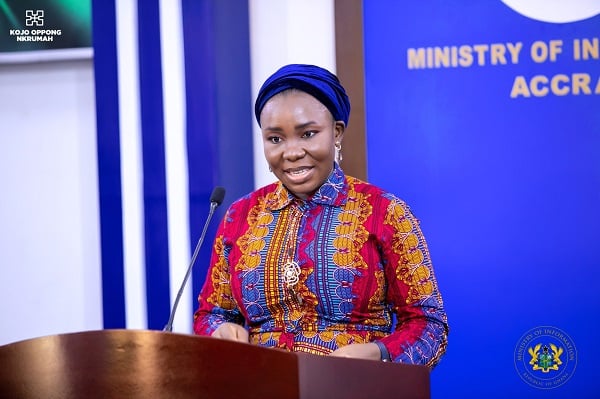The Government of Ghana has been vocal about its disappointment regarding the decision of Organised Labour to carry out a nationwide strike on October 10. This decision comes on the heels of recent negotiations aimed at addressing illegal mining, commonly referred to as galamsey, which poses a significant threat to the nation’s environmental landscape and economic stability. During these discussions, both parties appeared to agree on the importance of combating illegal mining, making Organised Labour’s insistence on proceeding with the strike a source of frustration for government officials.
The crux of Organised Labour’s agitation lies in their demand for the president to declare a state of emergency on illegal mining and take decisive, long-term action to tackle the issue. Government officials have underscored their commitment to fighting illegal mining, hoping that this would appease the concerns of Organised Labour and avert the strike. Information Minister Fatimatu Abubakar’s statement on October 7 reflects the government’s surprise and disappointment, as they believed there was enough common ground to avoid escalation into labor action.
In response to the ongoing challenges posed by galamsey activities, the government has not only reiterated its commitment but has also endorsed calls for presidential candidates to sign an agreement denouncing illegal mining. This move aims to ensure that all political leaders are aligned in the fight against environmental degradation and are held accountable for their stance on galamsey. The urgency in these discussions is marked by the government’s proactive approach to bind future leaders to a collective commitment against illegal mining practices.
Another significant step the government plans to take is the revocation of the Environmental Protection Regulations of 2023 (L.I 2462) during the upcoming parliamentary session. This action signifies a shift in regulatory strategy and conveys the seriousness with which the government is approaching the illegal mining crisis. As parliament reconvenes, stakeholders are anticipating discussions that would facilitate a more robust regulatory framework, aiming to curb the pervasive impacts of illegal mining on both the environment and local communities.
Organised Labour’s decision to strike sends a stark message about their level of dissatisfaction with the current measures and the perceived inadequacy of government responses. The planned demonstration reflects not only a demand for immediate action but also highlights broader concerns regarding the administration’s effectiveness in managing natural resource exploitation, which has deep social, economic, and environmental ramifications. The strike is expected to galvanize labor factions and civil society groups, amplifying the call for urgent and sustainable interventions against illegal mining.
In summary, the Government of Ghana finds itself at a crossroads with Organised Labour over the escalating issue of illegal mining. The ongoing dialogue reflects a complex interplay of labor rights, environmental conservation, and political accountability. It signals a clarion call for all stakeholders, including government, labor, and civil society, to collaborate in crafting sustainable solutions while navigating the challenges posed by illegal mining. The government’s commitment to take more stringent action, including potential regulatory changes, may pave the way for future resolutions, yet the looming strike underscores the urgency of addressing these entrenched concerns head-on.


